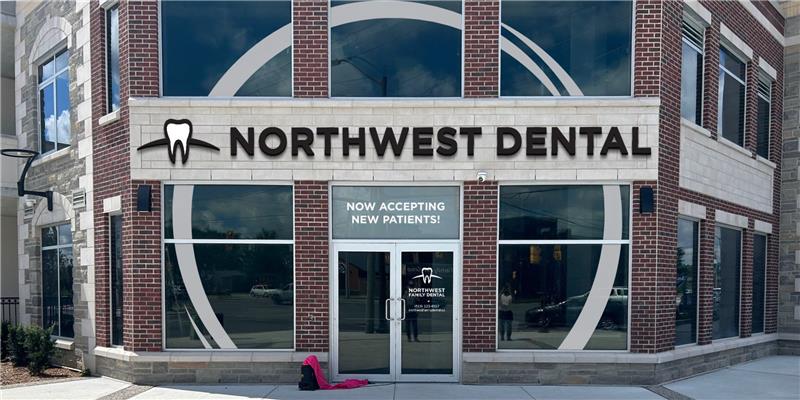Frequently Asked Questions About Dental Care
Your Guide to Our Most Frequently Asked Questions

Frequently Asked Questions About Your Dental Care
Are you accepting new patients?
Yes, Northwest Dental is currently accepting new patients. We welcome walk-ins and emergency appointments as well. Contact us to book your appointment today.
Should you choose an electrical or manual toothbrush?
Manual toothbrushes are affordable, effective, and easy to use, but electric toothbrushes can be more efficient—especially for those with limited dexterity. When choosing between an electric and manual toothbrush, consider brushing technique, ease of use, and budget.
To learn more, visit the Canadian Dental Association’s toothbrush tips for professional guidance.
What are dental implants and what does the procedure involve?
Dental implants are titanium posts surgically placed into the jawbone to act as artificial tooth roots. Once healed, a custom-made crown is attached, creating a natural-looking, permanent replacement for missing teeth.
Dental implants can help restore your smile and chewing function. Learn more about dental implants on our service page.
What is cosmetic dentistry and what does the procedure involve?
Cosmetic dentistry includes a range of treatments like teeth whitening, veneers, bonding, and full smile makeovers. It’s designed to improve the appearance of your smile, boosting your confidence and satisfaction with how your teeth look.
Visit our cosmetic dentistry page to explore your options and start your smile transformation at Northwest Dental.
Frequently Asked Questions From Our Patients
Why do gums bleed when I brush my teeth?
Bleeding gums are often a sign of gum disease caused by plaque and tartar buildup. Left untreated, it can lead to receding gums, bone loss, and even tooth loss.
The best treatment is early intervention with a dental check-up and cleaning. Schedule your gum health exam with Northwest Dental today.
Why is flossing so important?
Brushing alone can’t reach between your teeth, where plaque and food particles hide. Flossing once a day helps prevent cavities and gum disease by cleaning these difficult-to-reach areas.
For guidance on flossing, refer to the CDA’s advice on flossing to make sure you’re doing it effectively.
Why is it important that I visit my dentist every 6 months?
Routine check-ups help detect early signs of decay, gum disease, and oral cancer. Cleanings every six months also help maintain a healthy mouth by preventing buildup that can lead to long-term damage.
Some patients may need more frequent visits depending on their individual needs. Book your next dental exam at Northwest Dental today.
How can I help myself prevent bad breath?
Bad breath, or halitosis, is often caused by bacteria on the tongue and in the mouth. Proper brushing, flossing, tongue cleaning, and regular dental visits can help eliminate the source.
If your bad breath persists, it could indicate gum disease or another issue. Contact us to schedule an appointment at Northwest Dental.

